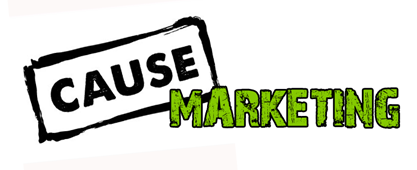Agencies Increase Focus on Cause Marketing
Cause marketing is a growing trend in advertising, as agencies seek to align the brands they represent with social causes customers care about. The growing agency focus on cause marketing is now larger than ever, as evidenced by WPP’s Young & Rubicam Group’s decision to open a practice called Young & Rubicam Group Inspire entirely devoted to advertising with a cause.
Young & Rubicam Inspire is "drawing upon employees at several of the more than a dozen units of the Young & Rubicam Group, among them the public relations agencies Burson-Marsteller and Cohn & Wolfe, the branding agency Landor Associates, the public affairs agency Penn Schoen Berland, the digital agency VML, the direct marketing agency Wunderman and, of course, the advertising agency Y&R," reported The New York Times. The new practice already has a presence online and on Twitter, and Young & Rubicam has been considering forming such a practice for three years, according to chairman and CEO Peter Stringham. Stringham told The New York Times that the realization that such a practice was necessary was accelerated by "the emergence of the millennials,” now seemingly advertising’s favorite target demographic, adding that "what the younger generation does washes back into the general population."
He pointed to Trish Wheaton, managing partner for global new business at Y&R, as the principal advocate for forming the new practice. Wheaton identified the goal of the organization as meeting consumers’ "high expectations about the companies they do business with and the brands they will be loyal to," while offering "a multidisciplinary approach that is unique, powerful." While the practice is starting small in its early stages, Wheaton is hopeful that it will grow over time. "Right now, we’re pulling together teams that have expertise to work on a given initiative," she said. "In due course, we would hope we will be successful enough to have some dedicated full-time employees."
Young & Rubicam Inspire is the latest example showing that cause marketing can no longer be ignored. Others include Havas PR’s recent Havas Worldwide Climate Practice and Publicis Groupe’s recent acquisition of Salterbaxter, which The New York Times describes as "a consultancy that specializes in advising marketers and brands on sustainability."
Popular causes in advertising include environmental concerns, feminist issues, and LGBT rights. Pride month saw a wealth of campaigns from brands including Burger King, YouTubeand Lucky Charms. Female empowerment campaigns included Dove’s award-winning "Real Beauty Sketches" campaign and Always’ recent viral success "Like A Girl." Criticism surrounding another Dove campaign, "Beauty Patches," demonstrates the hazards of cause marketing: appearing insincere, or even tone-deaf and offensive.
Consumers have a natural skepticism about brands allying themselves with causes, and it takes tact to appear to not be using the cause solely for financial gain. Environmental ads are routinely labeled "greenwashing," with Coca-Cola a notorious offender in the eyes of many groups. The terms "pinkwashing" and "rainbow washing" have also sprung up, to describe ads that capitalize on women’s issues and LGBT issues. As cause marketing becomes more prevalent, consumer skepticism will only increase and such campaigns will need to be handled with expert care on the part of advertisers, and backed by meaningful initiatives from brands.
As Stringham put it, "People trying to pull the wool over shareholders’ eyes or consumers’ eyes is not something we want to take part in. There is nothing we can do that masks the truth."
Via AdWeek






 Posted On May 27 2025
Posted On May 27 2025